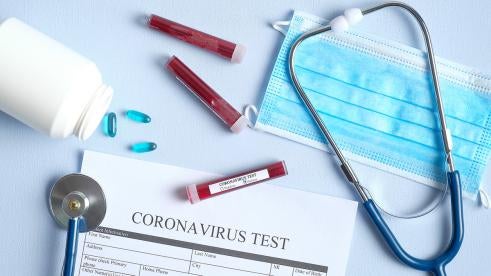The U.S. Equal Employment Opportunity Commission (EEOC) has updated its Technical Assistance Guidance to clarify that employers may administer and/or require COVID-19 testing as a gateway mechanism before allowing employees to return to the workplace without violating the American with Disabilities Act. Screening workers for health risks is one way for businesses to meet their legal responsibility to provide employees with a safe workplace and to potentially isolate employees that carry the virus but are asymptomatic from infecting others. However, as cautioned by the EEOC, testing only confirms whether the virus is currently present. Employees may still acquire the virus after testing, requiring ongoing compliance with the employer's existing infection control practices to protect workers.
The EEOC has approved use of the following screening mechanisms if completed in a manner that is consistent with the EEOC guidance including confidentiality of medical information:
-
Screening for Symptoms: Employers may ask employees entering the workplace about any symptoms identified by public health authorities as associated with COVID-19. For instance, employers may ask employees about fever, cough, shortness of breath, loss of smell or taste, as well as gastrointestinal problems such as nausea, diarrhea and vomiting. Employers must maintain the confidentiality of any notes or documentation related to this screening.
-
COVID-19 Tests: Employers may administer a COVID-19 test (designed to detect the presence of the COVID-19 virus) before permitting employees to enter the workplace without running afoul of the Americans with Disabilities Act. Employers considering this course of action should review guidance from the U.S. Food and Drug Administration concerning safe and accurate testing.
-
Temperature Checks: Employers may require all employees to have a daily temperature check before entering the workplace and may maintain a log of the results. Again, employers must maintain the confidentiality of this medical information.
The utility and permissibility of employers using antibody (or serology) tests is still an open question. The EEOC has not yet spoken to whether such tests are allowable in the workplace.
All medical information about a particular employee, including information relating to COVID-19, should be stored separately from the employee's personnel file, thereby limiting access to this confidential information. However, employers may store medical information related to COVID-19 in existing medical files and need not create a new file system solely for this information.
Employers considering adopting testing procedures should be mindful of the potential for false positives or false negatives and have internal protocols in place for follow up to clear employees to return to the workplace.







 i
i


